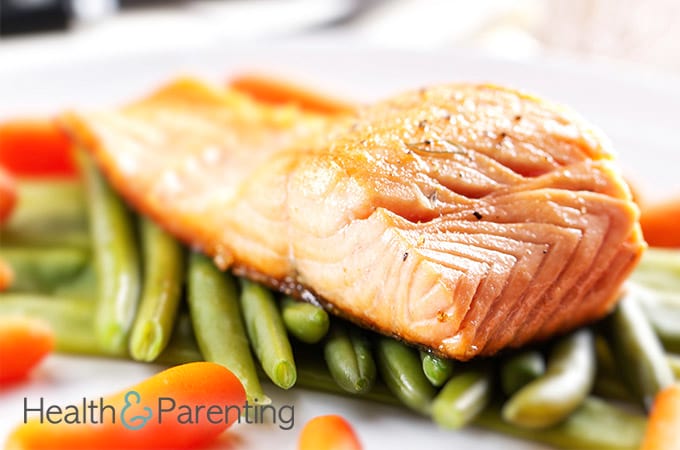Years ago, women were forbidden from eating certain fish and seafood during pregnancy. The issue was due to the high levels of mercury in some fish products. In fact, the news was so widely spread and largely misunderstood that many women halted their consumption of fish and seafood altogether.
Today, for many people living health conscious lives, fish is a common main meal ingredient. In order to help clear up any confusion in regard to eating fish in pregnancy, read on…
The US Food and Drug Administration (FDA) advises pregnant women, or women trying to conceive, to eat no more than 12 ounces of fish per week. To make this easier, fish such as tuna, or fish fillets should be eaten no more than twice per week. The FDA also recommends that pregnant women, or those trying to conceive, eat shrimp, salmon, pollock, and catfish while avoiding swordfish, shark, tilefish, and king mackerel due to their higher potential mercury levels. Albacore tuna and tuna steaks have more mercury than chunk light tuna in a pouch or can, but if you limit yourself to about one serving of either per week, you should be fine, according to the FDA. Most physicians also agree that shellfish, such as oysters, should only be eaten in season, although crabs, lobster, clams, scallops, and oysters have very low levels of mercury compared to other grocery market fish.
Their high levels of Omega-3 fatty acids make fish and seafood one of the ultimate super foods of pregnancy. Not only are they good for you, but they are also good for your growing baby. In fact research has proven that these essential fatty acids can help to prevent preeclampsia, preterm labor, and help to increase your baby’s cognitive development. Additionally, pregnant women who maintain good levels of Omega-3s are less likely to suffer from postpartum depression. The good news is that you can get these fatty acids without consuming fish by taking supplements. Before buying one over-the-counter, talk to your physician. In fact, today many prenatal supplements come fortified with Omega-3 fatty acids. You can also take fish oil capsules available from most drug stores or herb shops. Just remember to speak with your healthcare provider before taking any medications or supplements.
If you aren’t a fan of fish, but want the health benefits of the fatty acids contained in fish, look for fish oil supplements, or other foods such as Omega-3 vegetarian eggs, to add to your well balanced diet. But, if you love fish, and are limiting your intake to twice per week or no more than 12 ounces per week – you should have nothing to worry about when eating fish in pregnancy.
Written By Stef, Mom of 4 @Momspirational
This information is not intended to replace the advice of a trained medical doctor. Health & Parenting Ltd disclaims any liability for the decisions you make based on this information, which is provided to you on a general information basis only and not as a substitute for personalized medical advice. All contents copyright © Health & Parenting Ltd 2017. All rights reserved.










